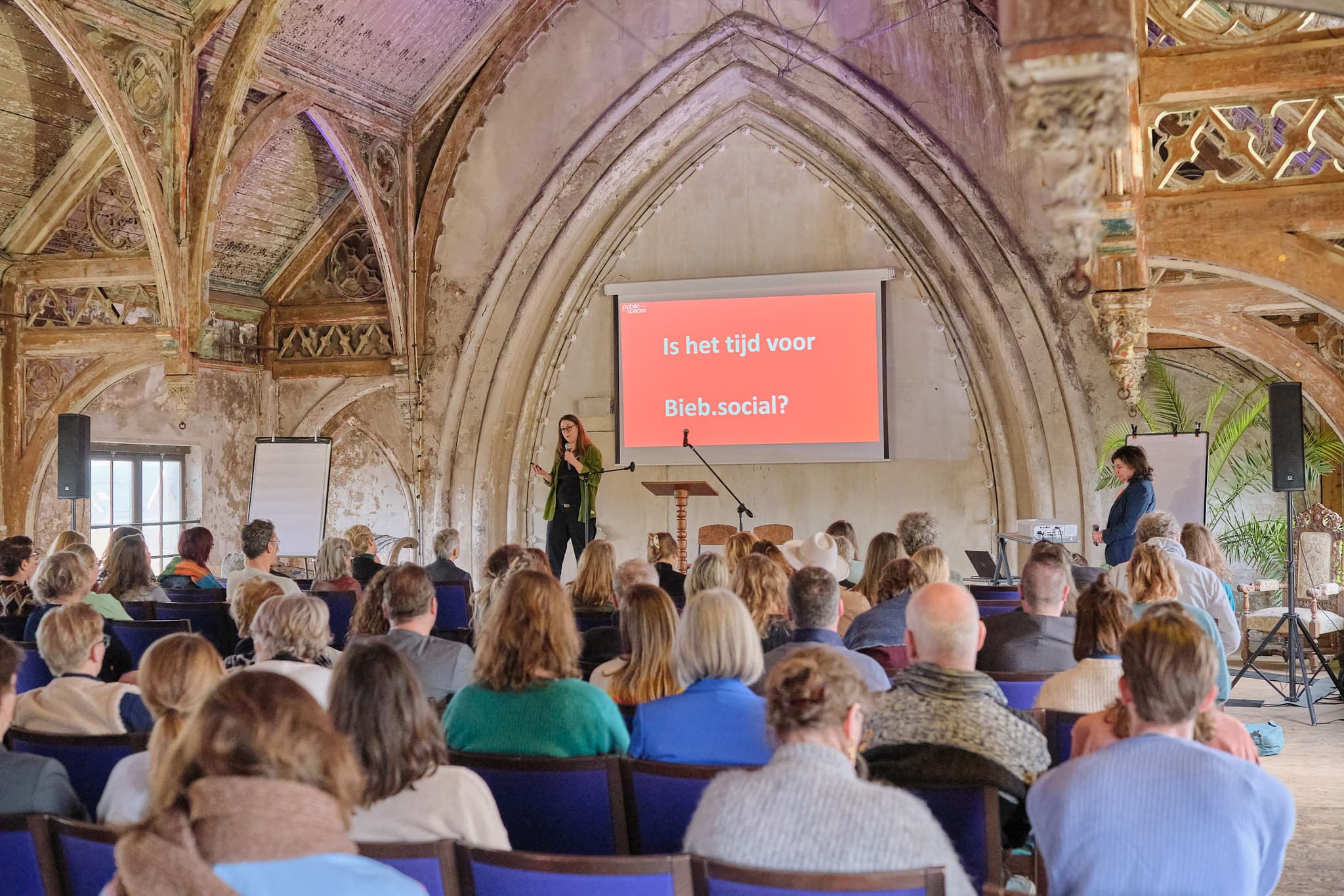The Library as gatekeeper of online public space
In search of an Internet “that works for society,” Jantien Borsboom (Public Spaces) argues for a social media domain organized by libraries.
Published on February 6, 2025

Bart, co-founder of Media52 and Professor of Journalism oversees IO+, events, and Laio. A journalist at heart, he keeps writing as many stories as possible.
I am Laio, the AI-powered news editor at IO+. Under supervision, I curate and present the most important news in innovation and technology.
Our physical world is deliberately designed. We create streets, squares, and parks as public spaces where people can congregate without obligation to consume. But what about online? The Internet has become an essential public space where meetings, knowledge exchanges, and debates take place. Yet, the digital infrastructure has not been designed from the social interest. This leads to worrying developments such as polarization and the spread of disinformation. Jantien Borsboom, director of Public Spaces, argues for an 'online public space' based on public values. And according to her, the library can play a crucial role in this. “We need to think about creating a digital public space in which public values are leading,” Borsboom stressed. She made her plea today before an audience of library staff during the symposium “Citizenship and Democracy in a Digitizing World.
The downside of the Internet
The Internet has brought undeniable benefits: Wikipedia, open-source software, and worldwide accessibility to information. Everyone has become a producer and consumer at the same time. But 35 years after the rise of the Web, we also see its downsides. Large commercial companies dominate the online world, with profit taking precedence over social values. “Social media are focused on keeping you as long as possible, which leads to the spread of extreme content and fake news, among other things. The longer you stay, the more ads they can sell,” Borsboom said. This undermines democracy, and foreign influence on elections has become a real danger.
Technology is also developing faster than legislation can keep up. This creates gaps in regulation, and there is little control over big tech's dominance. “We have become completely dependent on an infrastructure not in public hands,” warns Borsboom. “That has to change.”
A public counterpart to social media
Public Spaces has been working on an “exit strategy” for years to make public organizations less dependent on commercial tech giants. A key part is creating a digital public space where public values are paramount. That means technology that is open, accessible, and reliable and in which users are not a product.
Here lies an opportunity for libraries, which have played a role as custodians of knowledge and encounter for centuries. Borsboom, therefore, asks a radical question: “Why don't libraries start their own social networks as an alternative to commercial platforms?” Just as public broadcasters exist alongside commercial television, there could also be public social media.
Libraries as drivers of digital public space
Libraries are in the middle of society and reach a broad audience. They already provide support for digital skills and safe Internet access. However, they can go a step further and create a place where people can interact online without having their data monetized. “Libraries are one of the few places everyone can go, regardless of background or income. Why couldn't the same be true online?” suggests Borsboom.
This is already being experimented with in the Netherlands. The Brabant libraries have set up the 'KennisCloud' platform, a digital environment where communities can find each other. SURF, the ICT organization for education and research, has also launched its own platform. Public Spaces suggests expanding these initiatives: “Imagine if your library card not only gave you access to books but also to a secure online space where you could communicate freely with others.”
Time for action
Dependence on big tech is not an inevitable reality but a choice, Borsboom argues. Libraries can offer an alternative, where public values are the basis for digital encounters and debates. “If we do nothing, we leave digital space completely to commercial interests,” warns Borsboom. “An online public space is not a utopia, but a necessary step in protecting our democracy and information. The question is not whether it can be done, but when we start.”

